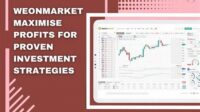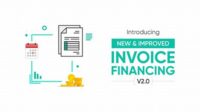Forex investment, also known as currency trading or FX trading, involves buying and selling currencies with the aim of making a profit from fluctuations in their exchange rates. It is the largest financial market in the world, with a daily trading volume of trillions of dollars.
Forex investment can be a lucrative way to grow your money, but it is also important to be aware of the risks involved. The value of currencies can fluctuate rapidly, and there is always the potential to lose money. However, by carefully managing your risk and using sound trading strategies, you can increase your chances of success.
Benefits of Forex Investment
- High liquidity: The forex market is the most liquid financial market in the world, which means that it is easy to buy and sell currencies quickly and easily.
- 24-hour trading: The forex market is open 24 hours a day, 5 days a week, which gives you the flexibility to trade whenever it is convenient for you.
- Low transaction costs: Forex brokers typically charge low transaction costs, which can save you money on your trades.
- Potential for high returns: The forex market is a volatile market, which means that there is the potential to make high returns on your investment. However, it is important to remember that there is also the potential to lose money.
How to Get Started with Forex Investment
If you are interested in getting started with forex investment, there are a few things you need to do:
- Choose a reputable forex broker. There are many different forex brokers out there, so it is important to do your research and choose one that is reputable and regulated.
- Open a forex trading account. Once you have chosen a broker, you will need to open a forex trading account. This is where you will deposit your funds and place your trades.
- Learn about forex trading. There are many resources available to help you learn about forex trading. You can read books, articles, and online courses. You can also practice trading on a demo account before you start trading with real money.
- Develop a trading strategy. Once you have a basic understanding of forex trading, you will need to develop a trading strategy. This will help you to make informed decisions about when to buy and sell currencies.
Forex investment can be a rewarding way to grow your money, but it is important to be aware of the risks involved. By carefully managing your risk and using sound trading strategies, you can increase your chances of success.
Forex Investment
Forex investment, or currency trading, involves buying and selling currencies with the aim of making a profit from fluctuations in their exchange rates. It is the largest financial market globally, offering unique opportunities and challenges to investors. Here are five key aspects of forex investment to consider:
- Liquidity: Forex is the most liquid financial market, facilitating quick and easy execution of trades.
- Volatility: Currency exchange rates are influenced by various economic and political factors, creating potential for both profits and losses.
- Leverage: Forex brokers offer leverage, allowing traders to control a larger position with a smaller investment, but also amplifying potential risks.
- 24/7 Trading: The forex market operates around the clock, providing flexibility for traders to enter and exit positions at their convenience.
- Accessibility: Forex trading is accessible to retail investors through online platforms and brokers, lowering barriers to entry.
These aspects collectively shape the dynamics of forex investment. The liquidity enables efficient execution of trades, while volatility presents both risks and rewards. Leverage can enhance returns but requires prudent risk management. The 24/7 trading window allows for flexible market participation. Accessibility empowers retail investors to participate in the forex market. Understanding these aspects is crucial for successful forex investment.
Liquidity
The liquidity of the forex market is a key factor that makes it attractive to investors. Liquidity refers to the ease with which an asset can be bought or sold without affecting its price. The forex market is the most liquid financial market in the world, which means that it is easy to buy and sell currencies quickly and easily.
This liquidity is important for forex investors because it allows them to enter and exit trades quickly and efficiently. This can be especially important in volatile market conditions, when prices can move rapidly. For example, if a trader sees an opportunity to profit from a sudden change in the exchange rate between two currencies, they can quickly execute a trade to take advantage of the opportunity.
The liquidity of the forex market also makes it possible for investors to trade large amounts of currency with minimal impact on the price. This is because there are always many buyers and sellers in the market, so even large orders can be executed quickly and efficiently.
Overall, the liquidity of the forex market is a major advantage for investors. It allows them to enter and exit trades quickly and easily, even in volatile market conditions. This can help investors to maximize their profits and minimize their losses.
Volatility
Volatility is a key characteristic of the forex market. Currency exchange rates are constantly fluctuating due to a variety of economic and political factors, such as interest rates, inflation, economic growth, and political stability. This volatility can create both opportunities and risks for forex investors.
On the one hand, volatility can lead to significant profits. For example, if a trader correctly predicts that the value of a currency will rise, they can buy that currency at a low price and then sell it at a higher price later on. On the other hand, volatility can also lead to losses. For example, if a trader incorrectly predicts that the value of a currency will rise and buys that currency, they may end up losing money if the value of the currency falls.
It is important for forex investors to understand the risks and rewards of volatility before they start trading. They should also develop a trading strategy that takes volatility into account. For example, a trader may choose to trade only in currencies that are relatively stable, or they may choose to use a stop-loss order to limit their losses in the event of a sudden change in the exchange rate.
Overall, volatility is a key factor that forex investors need to consider. It can create both opportunities and risks, so it is important to understand how volatility works and how to manage it.
Leverage
Leverage is a key concept in forex investment, as it allows traders to control a larger position with a smaller investment. This can be a powerful tool for increasing profits, but it also amplifies potential risks.
- Increased Profit Potential: By using leverage, traders can control a larger position with a smaller investment. This means that they can potentially make more profit from a given price movement.
- Increased Risk: Leverage also amplifies potential risks. If the market moves against a trader’s position, they could lose more money than they originally invested.
- Margin Calls: If a trader’s losses exceed their account balance, they may receive a margin call. This means that they will need to deposit more money into their account or close their position.
- Understanding Leverage: It is important for forex investors to understand how leverage works and how to use it effectively. They should also be aware of the risks involved and develop a trading strategy that takes leverage into account.
Overall, leverage is a powerful tool that can be used to increase profits and reduce risks in forex investment. However, it is important to use leverage wisely and to understand the risks involved.
24/7 Trading
The 24/7 nature of the forex market is a key advantage for investors, as it allows them to trade whenever it is convenient for them. This flexibility is especially important for traders who have other commitments, such as a full-time job or family responsibilities.
For example, a trader who works a 9-to-5 job can place a trade before they go to work and then close it when they get home. This allows them to participate in the forex market without having to take time off from work.
The 24/7 trading window also allows traders to take advantage of market movements that occur outside of regular business hours. For example, if a major news event happens overnight, traders can react to it immediately and adjust their positions accordingly.
Overall, the 24/7 trading window is a major advantage for forex investors. It provides flexibility and allows traders to take advantage of market movements whenever they occur.
Accessibility
The accessibility of forex trading to retail investors is a major factor in its growing popularity. In the past, forex trading was only available to large financial institutions and professional traders. However, the development of online trading platforms and brokers has made it possible for retail investors to participate in the forex market with ease.
This accessibility has had a number of positive effects on the forex market. First, it has increased competition among brokers, which has led to lower trading costs for retail investors. Second, it has made it possible for retail investors to access a wider range of trading tools and resources. Third, it has helped to educate retail investors about the forex market and how to trade it effectively.
The accessibility of forex trading to retail investors is a key component of its appeal. It has made it possible for a wider range of people to participate in the forex market and has helped to level the playing field between retail investors and large financial institutions.
Forex Investment Tips
Forex investment, or currency trading, offers opportunities for profit but requires careful planning and execution. Here are some tips to enhance your forex investment strategy:
Tip 1: Choose a Reputable BrokerSelecting a trustworthy and regulated broker is crucial. Research their track record, fees, and customer support to ensure a reliable trading experience.Tip 2: Understand LeverageLeverage can amplify both profits and losses. Use it judiciously, understanding the risks involved. Start with a low leverage ratio and gradually increase it as you gain experience.Tip 3: Develop a Trading PlanDefine your trading goals, risk tolerance, and entry and exit strategies. Stick to your plan to maintain discipline and avoid impulsive trades.Tip 4: Manage Your RiskEmploy risk management techniques such as stop-loss orders and position sizing to limit potential losses. Never risk more than you can afford to lose.Tip 5: Stay InformedMonitor economic news, political events, and market trends that can impact currency values. Use this information to make informed trading decisions.Tip 6: Practice with a Demo AccountBefore trading with real money, practice on a demo account to test your strategies and familiarize yourself with the trading platform.Tip 7: Learn ContinuouslyForex trading is constantly evolving. Dedicate time to learning about market dynamics, trading techniques, and risk management strategies.Tip 8: Be Patient and DisciplinedForex investment requires patience and discipline. Avoid emotional trading and stick to your trading plan. Success often comes to those who remain focused and persistent.
By following these tips, you can increase your chances of success in forex investment. Remember to approach trading with a clear strategy, manage your risk effectively, and stay informed about market developments.
Forex investment can be a rewarding endeavor, but it also involves risks. By following these tips and investing wisely, you can navigate the forex market with greater confidence and potentially achieve your financial goals.







